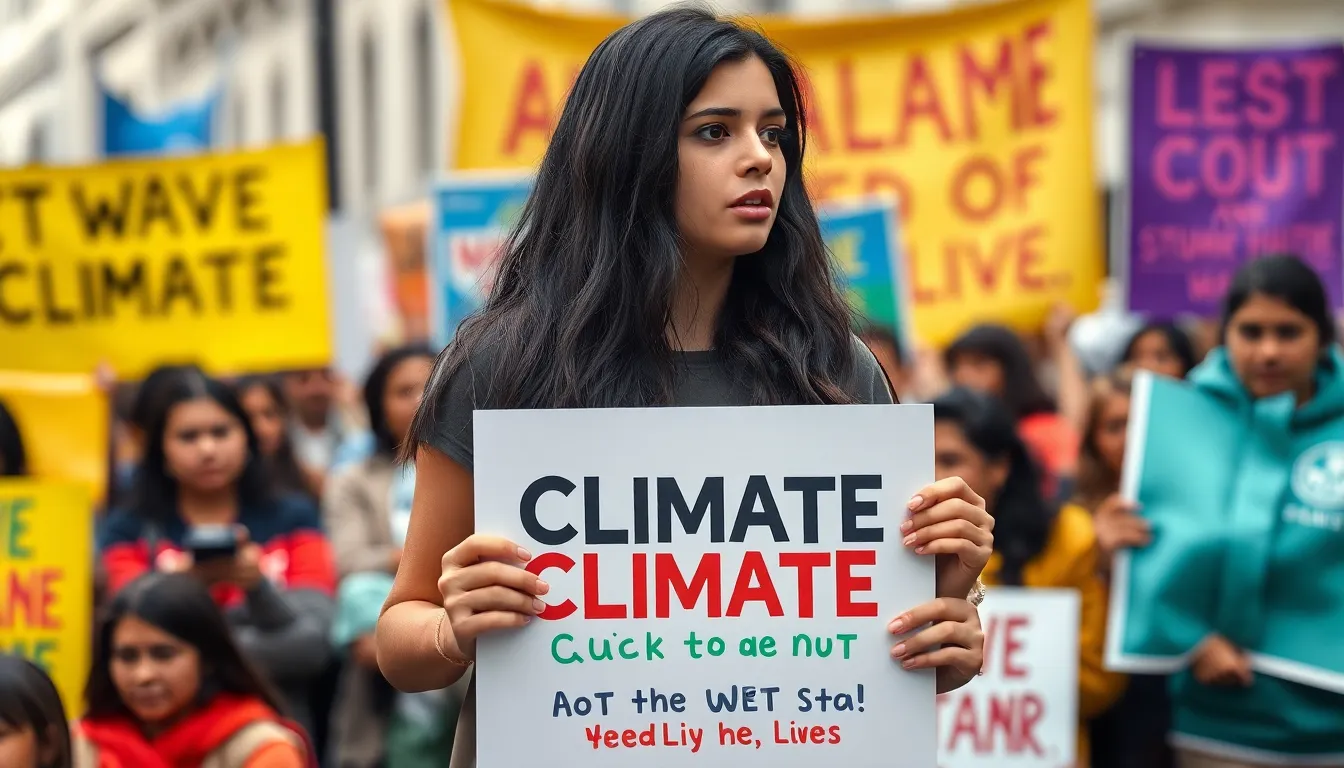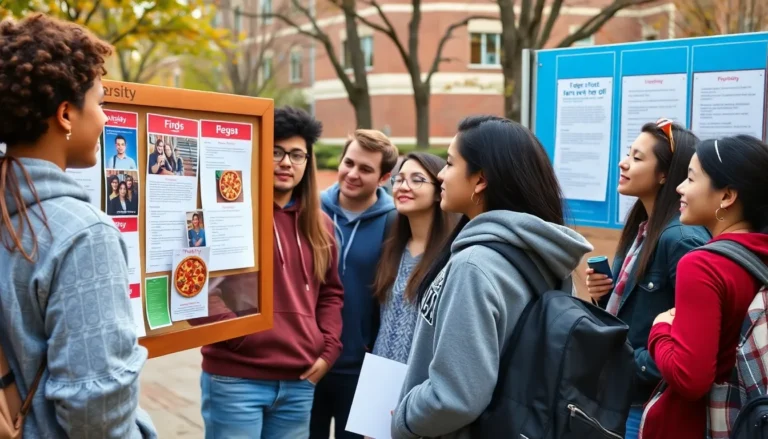Teenagers have a knack for shaking things up, and history proves it. From revolutionizing technology to leading social movements, these young trailblazers show that age is just a number. Who says you need gray hair to make a difference? With their passion and fresh perspectives, they’re turning the world upside down faster than you can say “TikTok.”
Imagine a world where teens are not just seen but heard—and boy, do they have a lot to say! Whether it’s fighting for climate change or championing equality, these young visionaries remind us that change can start with a single tweet or a viral video. Get ready to meet the fearless youth who dared to dream big and changed the course of history, all before they could even drive.
Table of Contents
ToggleHistorical Teenagers Who Made an Impact
Teenagers have historically played pivotal roles in shaping society. Their unique perspectives and fervent energy often lead to significant change.
Joan of Arc
Joan of Arc emerged as a formidable leader during the Hundred Years’ War. At just 17 years old, she claimed divine guidance, which empowered her to lead French troops to critical victories. With courage, she inspired her nation, rallying soldiers and boosting morale. Captured by enemies, she faced trial and execution, yet her legacy endures. Joan became a symbol of courage and faith, ultimately canonized as a saint. Her influence on French history demonstrates that age does not define capability.
Anne Frank
Anne Frank began her poignant journey as a teenage diarist during World War II. Living in hiding from Nazi persecution, she documented her thoughts and experiences in “The Diary of a Young Girl.” Her vivid writing reveals the realities of fear, hope, and resilience. Despite her short life, Anne’s diary became a powerful account of the Holocaust. The book has inspired millions to reflect on the importance of tolerance and human rights. Anne’s voice continues to resonate, reminding people of the horrors of discrimination and the strength of the human spirit.
Modern Teenagers Who Are Changing the World

Teenagers today continue to drive significant change, using their voices to address global issues and inspire action.
Malala Yousafzai
Malala Yousafzai advocates for girls’ education worldwide. After surviving a Taliban attack in 2012 at age 15, she became a prominent symbol for education rights. Her foundation, the Malala Fund, supports initiatives to ensure that girls receive 12 years of free quality education. This young activist’s influence extends beyond her immediate efforts, as her powerful speeches at global forums, like the United Nations, highlight the necessity of educational access. Her bravery and commitment have earned her recognition as the youngest Nobel Prize laureate in history.
Greta Thunberg
Greta Thunberg emerged as a leading climate activist at just 15 years old. Through her school strike for climate movement, she inspired millions of young people to demand action against climate change. Thunberg’s speeches, delivered at global summits and youth events, emphasize the urgency of addressing environmental issues. Her straightforward message resonates with audiences, urging them to take responsibility for the planet’s future. Her commitment continues to mobilize youth efforts and draw attention to the climate crisis, reinforcing the collective call for immediate action.
The Influence of Social Media on Teen Activism
Social media significantly influences teen activism by providing a platform for engagement and communication. It connects young activists from diverse backgrounds, enabling collaboration and the sharing of ideas.
Platforms Used by Teenagers
Instagram acts as a powerful visual medium, where teens showcase campaigns through eye-catching graphics and compelling stories. Twitter facilitates real-time conversations, allowing users to join trending discussions and mobilize support quickly. TikTok helps in spreading awareness through creative videos that resonate with a younger audience. Facebook offers a space for organizing events and creating community groups, fostering local activism. Snapchat’s ephemeral nature encourages spontaneous activism efforts, reaching peers effectively.
Case Studies of Successful Campaigns
The March for Our Lives exemplifies successful teen activism. Spearheaded by survivors of the Parkland shooting, this campaign galvanized national attention for gun control, demonstrating the potential of social media for mobilizing mass protests. #ClimateStrike, initiated by Greta Thunberg, united students worldwide. Her striking movement encouraged millions to participate in climate action, showcasing the global reach of youth activism. The #MeToo movement, amplified by countless teens, galvanized conversations around sexual harassment and abuse. These examples illustrate how social media can amplify teen voices and drive significant societal change.
The Role of Education in Empowering Teenagers
Education serves as a cornerstone for empowering teenagers. It provides them with knowledge, skills, and the confidence to voice their opinions and drive change. Access to quality education enables young individuals to develop critical thinking abilities and engage with pressing global issues.
Many organizations focus on educational initiatives, ensuring that young people receive the tools necessary for advocacy. For instance, Malala Yousafzai’s Malala Fund strives for 12 years of free quality education for girls. This initiative not only addresses educational disparities but also fosters a generation of empowered young leaders.
Curricular activities play a vital role in shaping teens’ understanding of social responsibility. Programs on human rights, environmental studies, and civic engagement encourage active participation in social causes. These subjects ignite passion and inspire teens to take action.
Extracurricular activities, like debating clubs or social justice groups, further support youth empowerment. Participation in such groups allows teenagers to express perspectives and collaborate with peers. Many effective movements, like #MarchForOurLives, originated from students who honed their skills through such engagement.
Digital literacy, a crucial aspect of modern education, prepares teenagers for activism in the digital age. By understanding how to navigate social media platforms, teens amplify their messages and connect with global audiences. This capacity to communicate effectively increases the impact of their advocacy efforts.
Education equips teenagers with the means to challenge the status quo and contribute groundbreaking ideas. By fostering an environment that prioritizes learning, society cultivates a new generation of changemakers capable of addressing critical issues.
Conclusion
Teenagers possess an incredible potential to influence the world around them. Their passion and innovation challenge the status quo and inspire change across various sectors. From historical figures like Joan of Arc and Anne Frank to modern activists like Malala Yousafzai and Greta Thunberg, young people have consistently proven that age is no barrier to making a significant impact.
As they harness the power of social media to amplify their voices, today’s teens are more connected and empowered than ever. Their commitment to issues like climate change and equality highlights the importance of listening to their perspectives. By fostering an environment that encourages education and activism, society can support the next generation of changemakers who will continue to shape a better future for all.



